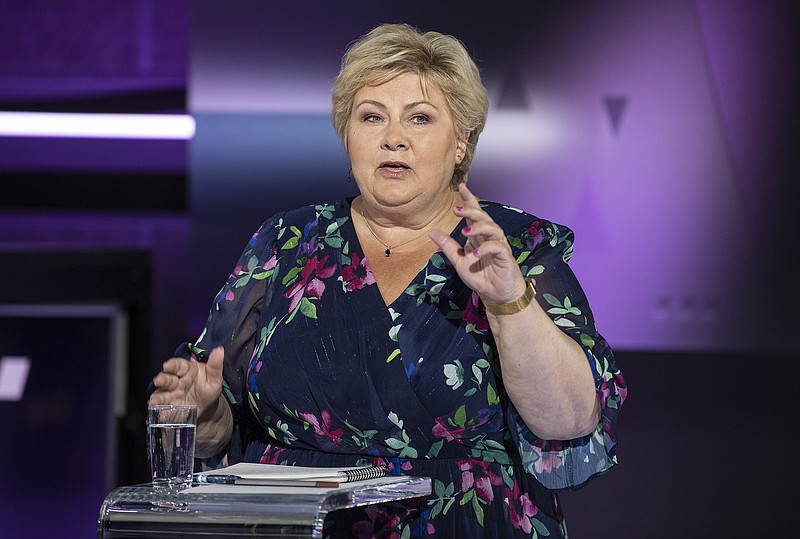COPENHAGEN, Denmark -- The center-left bloc in Norway appears to have won Monday's general election, according to the first official projection, which shows the ruling Conservatives would lose power after a campaign dominated by concerns over climate change and the future of the country's oil and gas exploration industry.
With a projection based on a preliminary count of nearly 52% of the vote, the Labor Party and its two allies -- the Socialist Left and the euroskeptic Center Party -- appear to have won power. The left-leaning side in the Norwegian parliament would get a total of 101 seats while the current government would get 67 of the Stortinget assembly's 169 seats, according to the Norwegian election commission. A majority is 85 seats.
[Video not showing up above? Click here to watch » https://www.youtube.com/watch?v=RT7KjQ3PFLc]
As Norway's largest party, Labor will try to form a coalition government and its chief, 61-year-old Jonas Gahr Stoere, is poised to become Norway's next leader. The Scandinavian country is not member of the European Union.
Labor has promised an industrial policy that will funnel support to new green industries, like wind power, "blue hydrogen" that uses natural gas to produce an alternative fuel, and carbon capture and storage, which seeks to bury carbon dioxide under the ocean.
"We will take our time to talk to the other parties, and we respect that this has not been decided until it is decided," Gahr Stoere, told his party before the polling stations closed Monday. In the 2013 election, Labor was ousted from power, enabling the Conservatives' Erna Solberg to become prime minister and Norway's longest-serving leader.
Any postelection horse trading is likely to be fraught for Gahr Stoere's Labor Party. The Socialist Left won't offer its support lightly, and the Center Party is also demanding a more aggressive approach toward shifting to renewable energy.
The campaign focused on the North Sea oil and gas that has helped make Norway one of the world's wealthiest countries. But fears about climate change have put the future of the industry in doubt. The country's biggest industry is responsible for over 40% of exports and directly employs more than 5% of the workforce.
On the other hand, Norwegians are among the most climate-conscious consumers in the world, with most new car purchases now being electric.
Most of Norway's oil and gas still comes from mature areas in the North Sea, but most of the country's untapped reserves are in the Barents Sea, above the Arctic Circle. That is a red line for environmentalists, who could play a crucial role in securing a majority government.
Gahr Stoere is a former civil servant who was elected to the Stortinget in 2009. He also owns a large part of his family's company, and most of the fortune there comes from the sale in 1977 of a Norwegian company that made cast-iron stoves and fireplaces.
Stoere also served as foreign minister from 2005-2013 under then-Prime Minister Jens Stoltenberg and took over the reins of the party when Stoltenberg became NATO's secretary general.
Nearly 3.9 million Norwegians were eligible to vote, and more than 1.6 million of them voted in advance, according to Norway's election commission.




